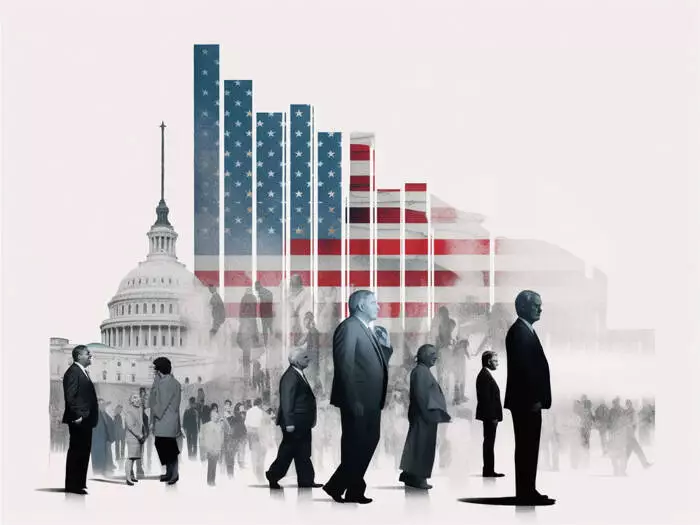The emerging realm of political betting faces significant hurdles in establishing its credibility. Recent developments have only served to amplify doubts about the integrity of these markets, particularly highlighted by the alarming activities of a single French trader who allegedly funneled millions into Trump-related contracts across various Polymarket accounts. Although investigations found no direct wrongdoing, the incident raises red flags regarding the susceptibility of prediction markets to manipulation. Such thinly traded environments, especially those lacking robust regulatory oversight, are inherently vulnerable to distortions that can undermine trust and stability.
Adding to the contentious atmosphere surrounding political betting are stark warnings from renowned investor Paul Tudor Jones. With the U.S. deficit projected to reach an alarming $1.8 trillion by 2024, Jones argues that the ramifications extend far beyond electoral predictions. He posits that a dire bond market crisis looms on the horizon, potentially catalyzing a significant rise in interest rates. This proposition draws attention to the inadequacies of both leading presidential candidates in effectively tackling the looming fiscal crisis. Their past records on managing deficit spending raise urgent questions about their capacity to navigate this multifaceted challenge.
Jones’s reference to a potential “Minsky moment,” which signifies a sudden market collapse precipitated by untenable fiscal policies, adds a sense of urgency to his insights. As he strategically trims his bond holdings anticipating increased volatility, it becomes evident that markets are on edge regarding America’s fiscal trajectory. The implications of an unfavorable post-election landscape could present political leaders with agonizing choices, such as retracting tax cuts instituted during the Trump administration or instituting severe spending cuts. These decisions, fraught with political peril, underline the complex reality awaiting whoever emerges victorious in the electoral competition.
With the political landscape influenced by Robinhood’s burgeoning election-related contracts, market participants now find themselves at a complex crossroads. Political betting could provide unconventional investment opportunities; however, the underlying fiscal pressures pointed out by Jones suggest that the excitement of short-term political outcomes may be overshadowed by more profound economic challenges. Investors may need to employ a delicate balancing act, weighing the impulse to engage in political speculation against the pressing economic headwinds that persistently threaten to alter the investment landscape.
As political betting markets gain traction, participants must recognize the stark reality that the victor in the upcoming U.S. presidential race could inherit monumental economic challenges that defy traditional solutions. The intricate dance between political speculation and fiscal responsibility presents a unique lens through which to examine America’s current socio-economic moment—where democratic engagement confronts harsh financial realities, and the allure of potential profits intersects with systemic risks. For investors, this demands a thoughtful and informed approach as they navigate an increasingly complex and volatile market environment.

